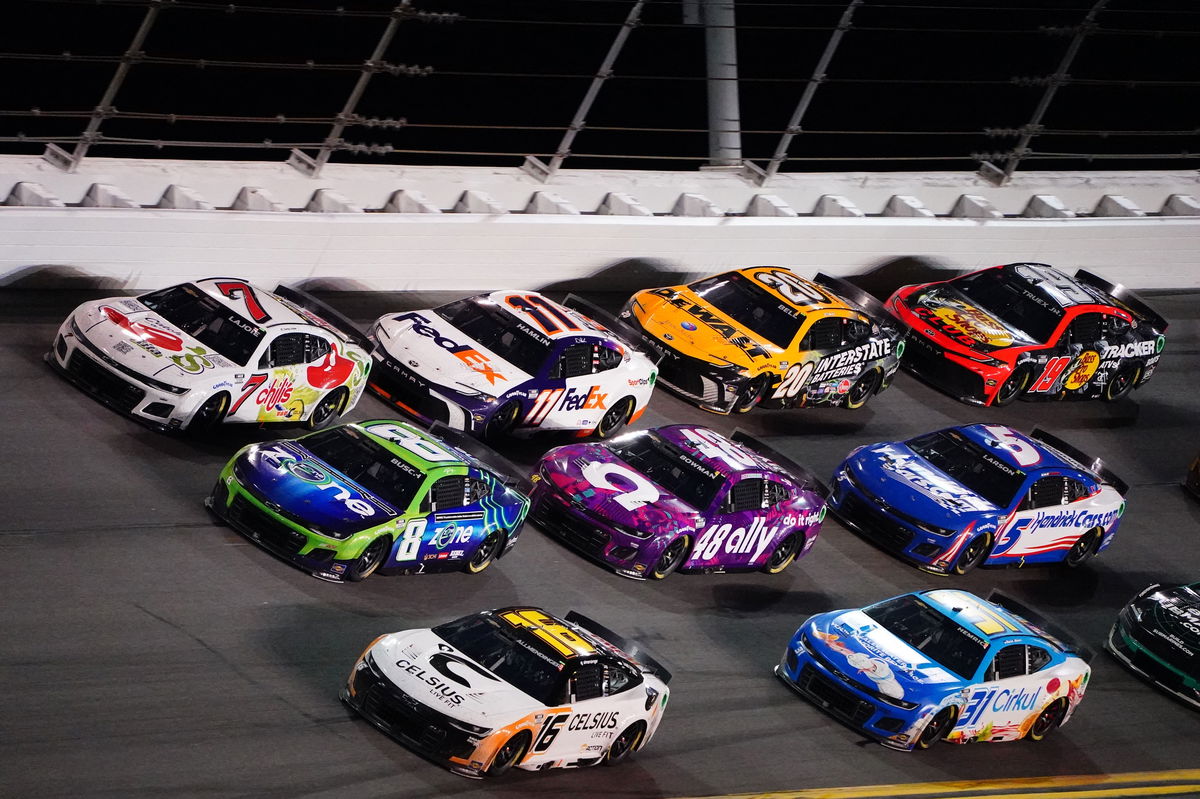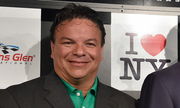

The Daytona 500, NASCAR’s crown jewel event, has always been about the thrill of competition. This year, though, the chatter isn’t just about the drivers battling for glory—it’s also about the controversial decision to guarantee Helio Castroneves, a four-time Indy 500 winner, a spot in the race regardless of his qualifying performance. NASCAR’s newly launched “Open Exemption Provisional” rule, designed specifically for “world-class drivers,” has caused quite a stir among fans and competitors alike.
Watch What’s Trending Now!
The idea that Castroneves could bypass the high-stakes qualifying process—a cornerstone of the Daytona 500’s drama—has left many questioning the integrity of the event. Sure, Helio’s resume is legendary, but should that alone guarantee him a place on the grid? For some fans, the answer is a resounding no.
ADVERTISEMENT
The NASCAR rule that sparked the fan outrage
So, what exactly is the “Open Exemption Provisional” (OEP) rule? One of the rules in the new list released by NASCAR guarantees a starting position in a NASCAR Cup Series race for a world-class driver, even if they fail to qualify through traditional means. If the Brazil native doesn’t make the cut through speed or the duels, he’ll still line up 41st on the grid, adding an extra car to the race. However, his team won’t earn points, purse money, or playoff eligibility from the effort.
When Bob Pockrass clarified the details of this rule on Twitter, fans were quick to express their frustration.“Got a clarification from NASCAR: If Helio Castroneves qualifies for the Daytona 500 through the duels or by speed, the field will be 40 cars. It will only be 41 if he fails to qualify and he uses the provisional (and then he/team doesn’t get purse money, points, etc).” said Pockrass.
Got a clarification from NASCAR: If Helio Castroneves qualifies for the Daytona 500 through the duels or by speed, the field will be 40 cars. It will only be 41 if he fails to qualify and he uses the provisional (and then he/team doesn’t get purse money, points, etc).
— Bob Pockrass (@bobpockrass) January 13, 2025
ADVERTISEMENT
This is a significant departure from NASCAR tradition. The Daytona 500 lineup has always been a mix of guaranteed spots for charter teams and fiercely contested slots for non-charter or “open” cars. Typically, only four open cars earn their place—two based on qualifying times and two from the duels. For fans, this format is what makes the 500 so compelling. But with the OEP in play, some argue it’s no longer a level playing field.
Top Stories
Greg Biffle’s $4M Prized Possession Goes Up for Sale After Tragic Crash, Leaving NASCAR Fans Heartbroken

NASCAR World Mourns as Former Watkins Glen President Michael Printup Passes Away at 60

Fox Broadcaster Pens Heartfelt Message as Veteran Announcer Quits NASCAR

Denny Hamlin Offers First Words Since Losing Beloved Father in Anniversary Fire

3x Indy 500 Champion Driver Eyes to Live 19-YO Dream With Surprise NASCAR Return

ADVERTISEMENT
Global appeal over fair play?
“So he could knock a driver out of the race but they can’t [do the same to] him. Dumb,” another fan vented online. The provision feels like a safety net for Castroneves, one that no other driver has access to unless they meet the same lofty criteria.
“Or how about, hear me out. If he doesn’t qualify, he doesn’t make the cut,” one fan bluntly remarked. Others echoed the sentiment, saying, “Not fair. He should qualify and race his way in like the other drivers.” The backlash has been swift, with critics arguing that this special provision undermines the entire point of qualifying and the Daytona Duels.
The Duels, in particular, are where the stakes are highest for open cars. These 150-mile qualifying races determine positions 3 through 40 on the grid, with non-charter teams fighting tooth and nail for a spot. The introduction of the OEP, however, adds an asterisk to this process. If Castroneves doesn’t perform, he still gets a free pass, rendering the drama of the duels somewhat hollow.
ADVERTISEMENT
While NASCAR positions this rule as a way to attract global talent and expand the sport’s appeal, many fans see it as a betrayal of the event’s competitive spirit. “Why doesn’t NASCAR respect itself to deny him entry if he can’t make the cut?” one comment read.
Even the logistics of the rule left some scratching their heads. “Wait, so if he fails to qualify and uses the provisional, what’s the point of the provisional if the race team gets nothing except being in the race? This is absolutely ridiculous. Unnecessary,” a fan questioned.
For NASCAR, the move seems to be about more than just Helio. It’s part of a broader strategy to attract international stars to showcase the sport’s appeal on a global stage like they are doing by traveling to New Mexico this year for the first international points-paying race.
ADVERTISEMENT
To add to that, Trackhouse Racing’s Project 91 initiative, which aims to bring motorsport legends like Castroneves into NASCAR, has already seen success with drivers like F1 legend Kimi Räikkönen and Kiwi Supercars champion Shane van Gisbergen. Helio’s entry into the Daytona 500 is the latest chapter in this experiment.
“It also exposes our sport to a global audience and allows them to see just how great of a series we have in NASCAR,” said Trackhouse co-owner Justin Marks. Yet, for the die-hard NASCAR faithful, the rule feels like a step too far—a compromise of the sport’s competitive integrity for the sake of star power.
The criticism raises important questions about NASCAR’s priorities. Is the focus shifting too much toward spectacle at the expense of tradition? And what message does this send to the drivers who must fight tooth and nail to secure their spot?
ADVERTISEMENT
As the Daytona 500 approaches, the spotlight will inevitably fall on Castroneves and the OEP rule. Will Helio’s debut be a historic moment for NASCAR, or will it be overshadowed by the controversy surrounding his guaranteed spot? Either way, the fans have spoken, and their message is clear: the Daytona 500 should be about earning your place, not being handed it.
ADVERTISEMENT
ADVERTISEMENT
ADVERTISEMENT

